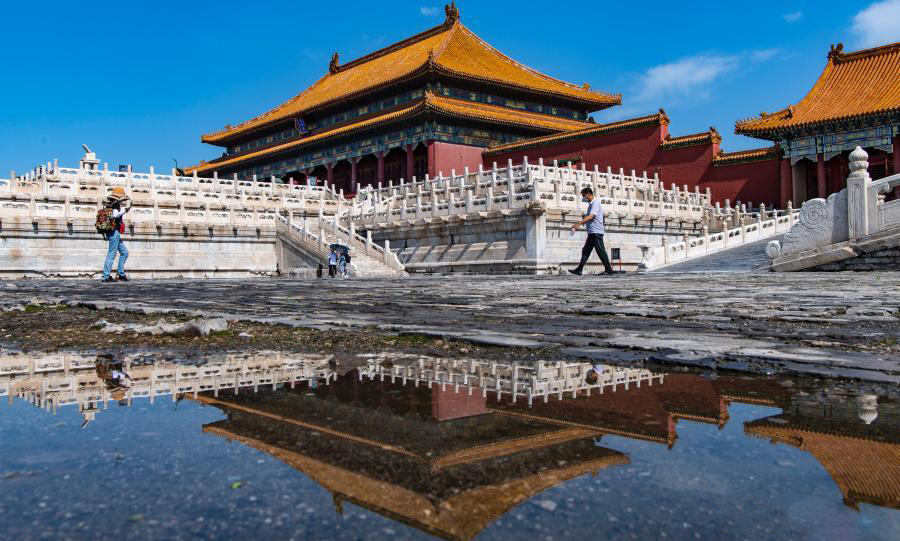Interview: Supply chain efficiency, technology generate favorable business environment in China, says Pakistani economist
ISLAMABAD, July 19 (Xinhua) -- Supply chain efficiency and technology, along with a dynamic zero-COVID policy, enabled China to generate a favorable business environment in its industrial sector, a Pakistani economist said.
The purchasing managers' index (PMI) for China's manufacturing sector came in at 50.2 in June, up from 49.6 in May, data from the National Bureau of Statistics of China showed.
Despite the pandemic, "China has sustained its global supply stream and enhanced the quality of infrastructure, which enabled China to fascinate foreign investors to make a greenfield foreign direct investment in a secured financial environment," said Badiea Shaukat, economic consultant at Islamabad-based Sustainable Development Policy Institute, during a recent interview with Xinhua.
He said China has been a significant contributor to global economic development since the beginning of this century.
Despite the ongoing international crises, China has attracted foreign investors through strengthening the domestic financial environment, lower labor costs, a big market and relaxed policies, Shaukat added.
"The sustainability of the Belt and Road Initiative also allures foreign investors to reap returns from the opportunity."
During the first five months of this year, the country's actual use of foreign direct investment amounted to 564.2 billion yuan, up by 17.3 percent year-on-year. In U.S. dollar terms, the inflow went up 22.6 percent year on year to 87.77 billion U.S. dollars.
As of the end of May, the number of registered foreign-invested enterprises in China reached 666,000, an increase of 0.3 percent over the end of last year.
Shaukat said a prudent monetary policy is a prerequisite to attaining the growth target of the year due to dropping financials as a result of the recent wave of pandemic in China.
In the current global environment of high inflation, he appreciated China's strengthening of cross-cyclical and counter-cyclical adjustments, saying it's very important.
The scissors difference between the consumer price index (CPI) and the national industrial producer price index (PPI) has further narrowed in China, down from 7.2 percentage points as of 2021 to 6 percentage points in the first half of this year.
Shaukat said the counter-cyclical approach being implemented would absorb the short-term negative impacts of the COVID preventive measures, through tax cuts and higher government expenditures.
While the cross-cyclical approach would serve the long-term objective of accelerating economic growth through lower interest rates, higher investment and higher exchange rates, he added.
The accelerated implementation of economic stabilization policies and measures would have two-sided benefits: An increase in the volume of production at a lower cost leads to lower inflation while higher employment would further increase real wages and expand the consumption capacity, Shaukat said.
Lower inflation leads to lower policy rates, further increasing domestic investment that would potentially result in higher economic growth, he added. "This will allow China's gross domestic product (GDP) to meet its growth target of 5.5 percent for the current year."
Photos
Related Stories
- China vows all-out efforts to stabilize industrial, supply chains
- Jiangsu Port Group ensures safety, stability of industrial and supply chain
- Interview: China to make all-out efforts to stabilize industrial, supply chains: official
- Chinese vice premier stresses stabilizing industrial, supply chains
- China stabilizes supply, industrial chains while tackling latest outbreak
Copyright © 2022 People's Daily Online. All Rights Reserved.









